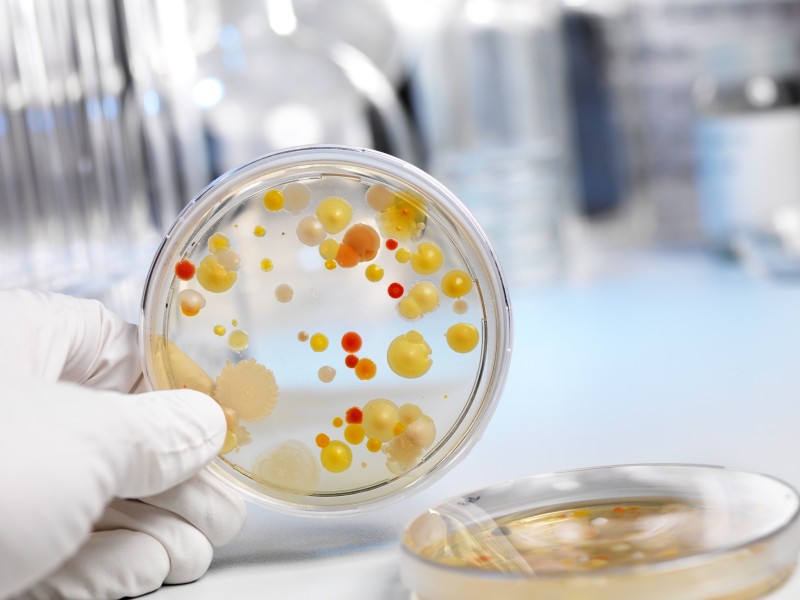Microbiological Cultures
What Is Microbiological Cultures ?
Microbiological cultures refer to the process of growing microorganisms (such as bacteria, viruses, fungi, and parasites) in a controlled environment, typically in a laboratory setting. This technique allows scientists and healthcare professionals to study and identify these microorganisms, understand their characteristics, and perform various tests to determine their susceptibility to antibiotics or other treatments.
Sample Collection: A sample containing microorganisms is collected from a patient, environment, or another source of interest. This could be a swab from a wound, a specimen of bodily fluid, or a sample from a surface or substance. Inoculation: The collected sample is introduced into a specific growth medium that provides the necessary nutrients and conditions for the microorganisms to grow. The growth medium can be solid (like agar) or liquid, depending on the type of microorganism being cultured. Incubation: The culture is placed in a controlled environment, usually an incubator, which maintains optimal temperature, humidity, and other conditions conducive to microbial growth. Different microorganisms have specific temperature and environmental requirements for growth. Observation: Over a period of time (ranging from hours to days), the culture is monitored for visible signs of microbial growth, such as colonies forming on the agar surface. Sub-Culturing: If needed, the culture can be sub-cultured by transferring a portion of the growing microorganisms onto a new culture medium. This is done to isolate specific strains or study the microorganisms further. Identification: Once the microorganisms have grown sufficiently, they can be identified using various techniques, including microscopy, biochemical tests, molecular methods, or serological assays. Microbiological cultures are used for several important purposes: Diagnosing Infections: Cultures can help identify the causative agent of infections, aiding in the selection of appropriate antibiotics or treatments. Research and Study of Microorganisms: Cultures are essential for studying the biology, behavior, and characteristics of microorganisms, as well as for conducting experiments and research. Quality Control in Industries: Industries like food production, pharmaceuticals, and cosmetics use microbiological cultures to test for the presence of harmful microorganisms and ensure product safety. Antimicrobial Susceptibility Testing: Cultures can be used to determine the sensitivity or resistance of microorganisms to specific antibiotics, helping guide treatment decisions. Epidemiological Investigations: Cultures play a role in tracking and studying outbreaks of infectious diseases to understand their origin and prevent further spread. Overall, microbiological cultures are a fundamental tool in microbiology and play a critical role in various aspects of healthcare, research, and industry. They provide valuable information for diagnosing and managing infectious diseases and for advancing our understanding of the microbial world.

What Is The Main Cause Of Microbiological Cultures ?
The main cause of microbiological cultures is to grow and study microorganisms in a controlled environment, typically in a laboratory setting. This process serves several important purposes in healthcare, research, and industry:
- Identifying Pathogens: Culturing allows for the isolation and identification of specific microorganisms that may be causing infections in patients. This is crucial for selecting appropriate treatments, such as antibiotics.
- Characterizing Microbial Properties: Cultures provide a platform for studying the growth patterns, biochemical reactions, and other characteristics of microorganisms. This information is essential for understanding their behavior and biology.
- Determining Antimicrobial Susceptibility: Microbiological cultures are used to perform antimicrobial susceptibility testing. This helps determine which antibiotics or treatments are most effective against a particular strain of microorganism.
- Research and Experimentation: Cultures are a fundamental tool in microbiological research. They allow scientists to conduct experiments, investigate disease mechanisms, and develop new treatments or interventions.
- Quality Control in Industries: Industries like food production, pharmaceuticals, and cosmetics use microbiological cultures to monitor and ensure product safety. This helps detect and prevent the presence of harmful microorganisms.
Epidemiological Investigations: In cases of outbreaks or epidemics, culturing is used to track and study the source and spread of infectious diseases. This information is crucial for public health interventions. Biotechnological Applications: Cultures are used in biotechnology for purposes like fermentation processes, the production of pharmaceuticals, and the development of biofuels. Environmental Monitoring: Cultures are employed in environmental microbiology to study microbial communities in various ecosystems and to monitor pollution levels. Education and Training: Microbiological cultures are used in educational settings to teach students about microbiology principles and techniques. Overall, microbiological cultures are a foundational technique in microbiology and play a critical role in various fields. They provide valuable insights into the behavior and characteristics of microorganisms, enabling advances in healthcare, research, industry, and public health.
Clinical Services
Facilities
24 Hours Services



